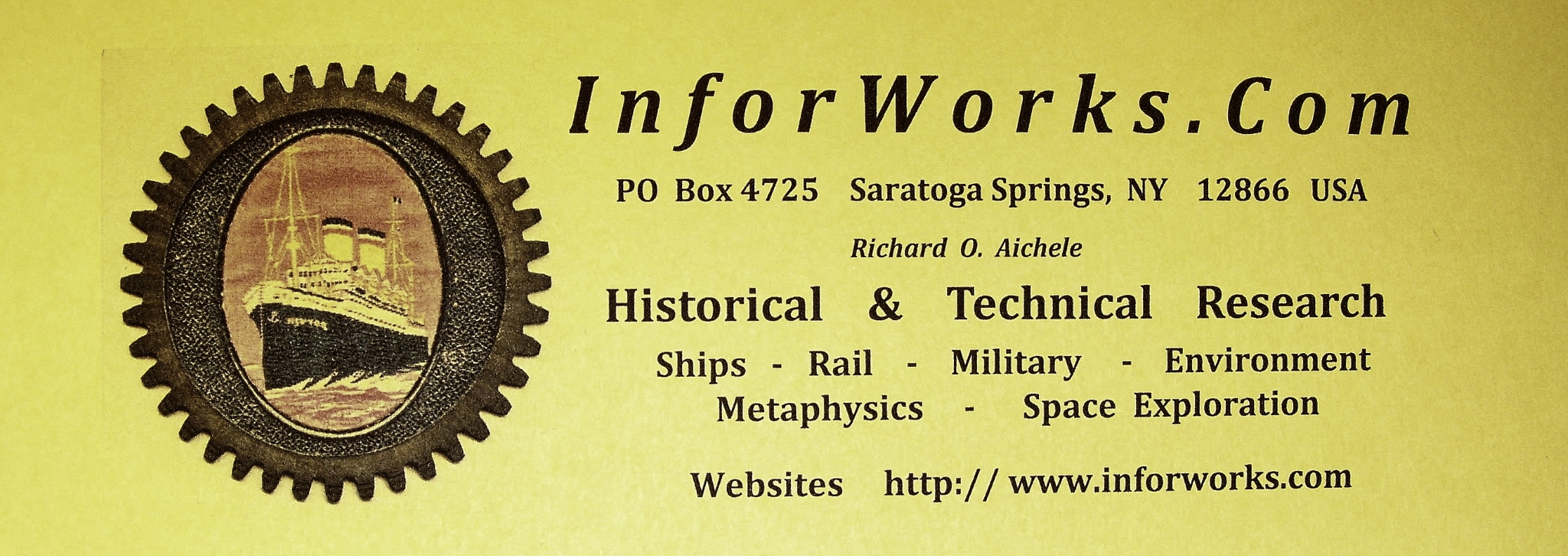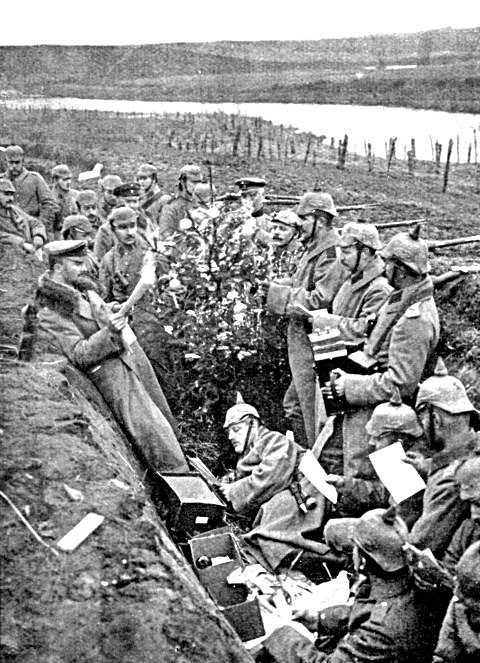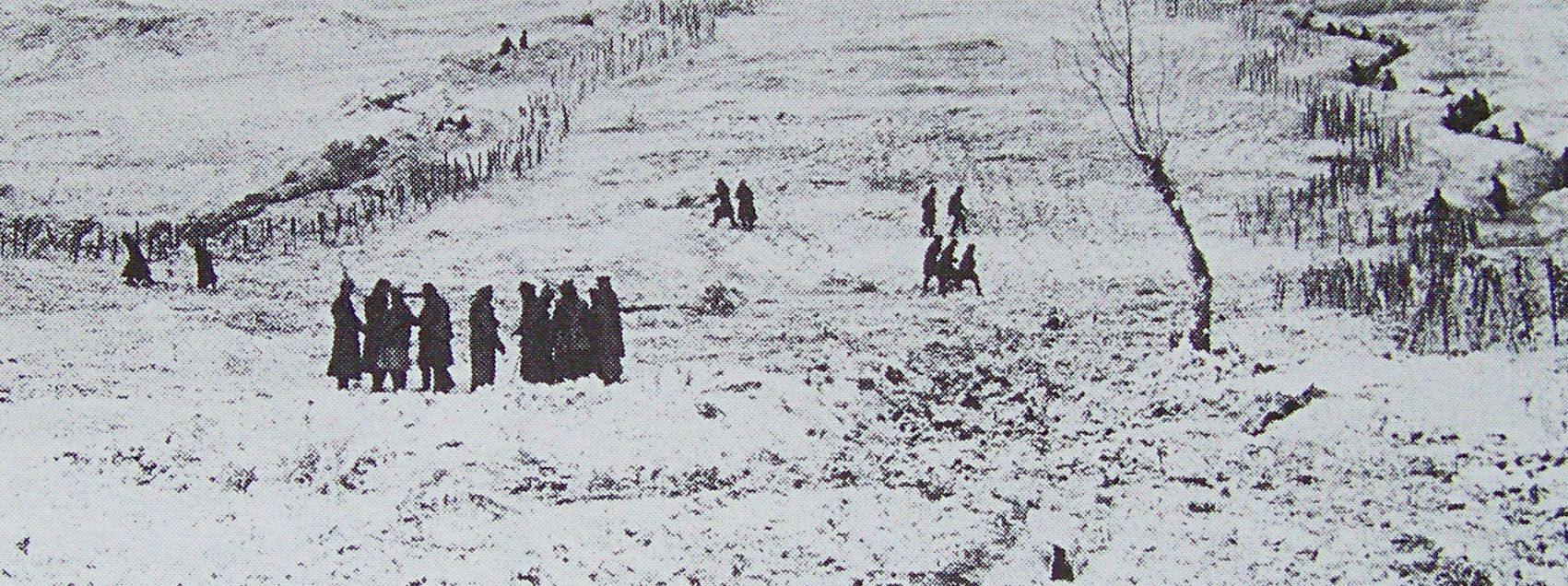Copyright 2020 by Richard O. Aichele - email rottoa@gmail.com - and InforWorks.com P.O. Box 4725, Saratoga Springs, NY 12866 USA |
World War One was 146 days old when a number of German, French and British ordinary soldiers maning the trenches of the Western Front recognized the futility of man against machine guns and high explosive shells. On Christmas Eve, the traditional time of peace and good will to others, the guns in some areas fell silent. |
The Soldiers Christmas Truces by Richard O. Aichele email: rottoa@gmail.com |
|
Christmas Eve December 1914. Sections of the front line trenches grew quiet. Christmas songs replaced gunfire and explosions. Soldiers walked peacefully from their trenches into No-Mans Land. They exchanged gifts with the enemy soldiers.
A German photo shows one incident of soldiers mingling in no-mans land between the trenches. Another photo shows British and German soldiers celebrating together in a trench. Unfortunately, those incidents were too short. Once discovered by higher ranking officers far behind the front lines, orders were issued to stop the peaceful activities and return to the business of killing the soldiers in the other trenches. And, too often, those orders were very forcibly enforced on their own troops by shelling the enemy trenches and, when necessary, their own trenches.
Christmas truces between French and German soldiers also occurred. Any signs of fraternization often resulted in severe reactions by high ranking officers well to the rear of the trench fighting. Louis Barthas, a thirty-five year old Frenchman mobilized when the war started, recalled one incident in his book Poilu. On Christmas Eve 2014 Bathas's unit manned the second line of French trenches facing German trenches near Annequin, France. "As soon as night fell, we were huddled in our holes, enjoying the thoughts of sleeping until dawn, when at about 9 O'Clock a harsh voice passed the order to get out of our holes and to hoist up our packs at all speed. In fact, something unusual had happened up at the front line. You could hear songs, clamors, numerous flares were set off on both sides, but no firing at all. Two hours later the alert was called off. We had no explanation of what happened until the next day." Barthas wrote that punishments for the front line's trench Christmas Eve incident began. "On Christmas Day, without any respect for the holiness of the day, they put us to work digging a big shelter...useless work...for that very evening we had to go up to the front line." The extra duty continued for several days. Christian Carion wrote, "The Artois region in France still carries the scars of bitter fighting and loss from the trenches of World War One. So why shouldn't one moment of camaraderie between enemies be celebrated and remembered," in the BBC December 25, 2014 article How France Has Forgotten The Christmas Truce Soldiers. Click for the complete bbc.com news article. The realities of some German and French front line soldiers seeking a little peace during Christmas 1914 varied. "Joint burials also took place in no man's land with Masses read in Latin. Soldiers visited each others' trenches to compare working conditions. Some evenings when the Scotch whisky had been flowing, soldiers fell asleep in the opposite trench and left the following day, apologising to those who lived there." The article noted that "Yves Buffetaut's book, Battles of Flanders and Artois, that enemy soldiers on opposing sides fraternized with each other over the Christmas period of 1914, ...some French soldiers applauded a Bavarian tenor, their enemy a German, on Christmas Eve while others played football with the Germans the next day." Christian Carion wrote, "I believe it took a great deal of courage for those men of Christmas 1914 to walk unarmed through no man's land at night to meet their counterparts in the opposite trench. And yes, it takes a huge amount of courage to offer your hand and venture a fraternal gesture." For just these brief periods, the normal peaceful inclinations of ordinary soldiers overcame the high level political insanity that later consumed millions of soldiers' lives during the next four years. - - - - - - - - - - - - |
|
|
|

 Early in the war, there were local unofficial truces but on Christmas Eve 1914 along some sections of the front line trenches German, French and British soldiers met openly between the trenches, enjoyed their adversaries Christmas carols and even exchanged gifts of tobacco or food.
Early in the war, there were local unofficial truces but on Christmas Eve 1914 along some sections of the front line trenches German, French and British soldiers met openly between the trenches, enjoyed their adversaries Christmas carols and even exchanged gifts of tobacco or food.



